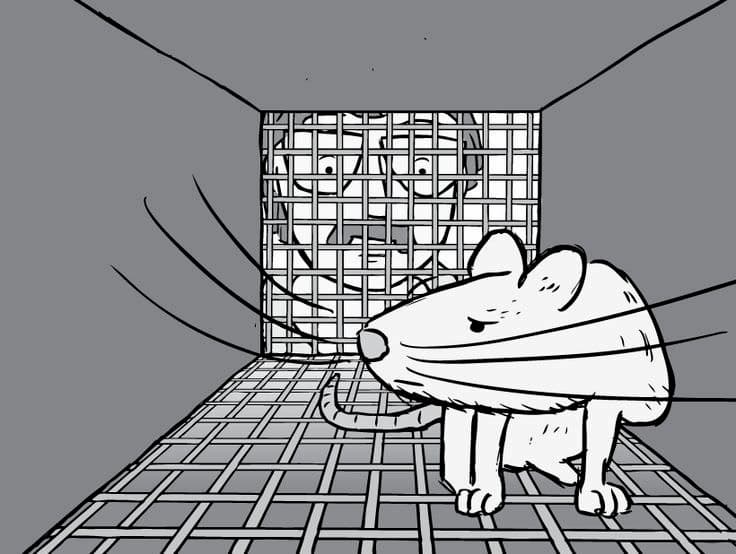
(Image from Stuart McMillen's comic Rat Park)
“It's now exactly 100 years since drugs were first banned. We take addicts and punish them and make them suffer, because we believe it gives them an incentive to stop taking drugs. The evidence is that this approach doesn’t work. Is there a better way?
Much of what we know about addiction comes from experiments(1). Get a rat and put it in a cage with two water bottles: One just water; the other laced with heroin. The rat will almost always prefer the drug water and almost always kill itself quite quickly. Imagine we started to use heroin three times a day. What would happen? Would our body become dependent and after 20 days, would we all be heroin addicts? The rat experiment would suggest so. Many people have taken a lot of pure heroin post operatively as diamorphine for pain relief. If what we believe about addiction is right, these people should become addicts. But that doesn't happen.
What if we put multiple rats in a wonderful cage with loads of cheese, coloured balls, tunnels and friends as well as the two drinking bottles? They don't use the drug water. None die. They go from almost 100% fatal overdose when isolated to zero percent overdose when they have happy and connected lives. Does this apply to humans as well as rats? In the Vietnam War, 20 percent of American troops used heroin. The American government were worried about hundreds of thousands of heroin addicts returning home at the end of the war. 95% of the soldiers simply stopped using heroin when they got home without any treatment or intervention whatsoever(2).
Human beings have a natural and innate need to bond, and when we're happy and healthy, we'll bond and connect with each other. But if we can't do that, because we’re traumatized or isolated or beaten down by life, we will bond with something that will give us some sense of relief. Any one of us could drink to oblivion but we tend not to, not because anyone's stopping us, but because we've got bonds and connections that we want to be present for. We've got people, work and homes we love.
Let's take the money we used to spend on cutting addicts off, on disconnecting them, and spend it instead on reconnecting them with society. Let's help by giving addicts something to get out of bed for in the morning. Let's help them rediscover purpose and rediscover bonds and relationships with wider society.
We live in a culture where people feel increasingly vulnerable to all sorts of addictions. How many close friends do we believe we can call on in a crisis? In the west, this number has been decreasing. Our society is becoming lonelier. Recovery isn't just about recovery of the individual but recovery of the communities those individuals live in. Our key message needs to be "you're not alone, we love you". The opposite of addiction isn't abstinence, it is connection.”
The core part of addiction is about not being able to bear to be present in our life. Addicts feel stigmatised and marginalised, they struggle to find a meaningful job, and they get housed in poor areas. We shame them. We give them criminal records. We put barriers between them reconnecting. We don't give them an incentive to stop; we contribute to making the addiction worse.
1. Alexander, Bruce K., and Patricia F. Hadaway. "Opiate addiction: The case for an adaptive orientation." Psychological Bulletin 92.2 (1982): 367.
2. Robins, Lee N., Darlene H. Davis, and Donald W. Goodwin. "DRUG USE BY US ARMY ENLISTED MEN IN VIETNAM: A FOLLOW-UP ON THEIR RETURN HOM." American Journal of Epidemiology 99.4 (1974): 235-249.
